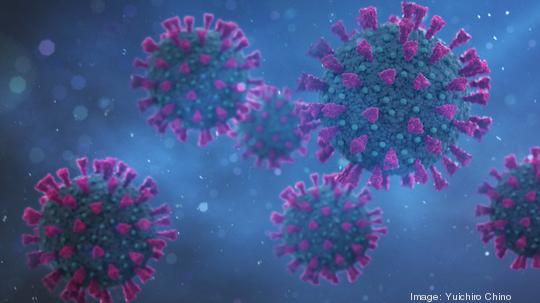
Virginia Commonwealth University is working on the development of a potential treatment for Covid-19.
Michael Peters, Ph.D., a professor in VCU’s Department of Chemical and Life Science Engineering, is leading the research.
Peters said he works everyday in response to the pandemic, which led him to the discovery of a possible lifesaving novel peptide therapeutic that could slow the transmission of Covid-19.
The research caught the attention of biopharmaceutical company Hoth Therapeutics, and recently led to a licensing deal.
“VCU Innovation Gateway and Dr. Peters partnered with Hoth Therapeutics to further develop Dr. Peters' technology and bring new treatment to the market,” Magdalena Morgan, director of licensing at VCU Innovation Gateway told Inno. “The research is still ongoing but moving forward quickly.”
She added, “Development of new therapeutics is a not an easy and straight forward process, but we remain optimistic that together we can bring this therapy to the market soon.”
Peters said that like vaccines, the primary goal of therapies is to prevent severe illness and death due to Covid.
“This research focuses on understanding how the structure of the virus impacts its ability to attach to human cells,” he said. “This information is necessary for the development of inhibitors that bind to the virus surface to prevent attachment to cells.”
Therapies developed through the research are aimed at treating infected patients by reducing their viral load, which lessens the severity of the virus.
Peters said despite his research, it’s still important for people to get vaccinated to help stop the spread of Covid-19, as well as the emergence of new, and sometimes more dangerous variants.
“Viral variants, such as Delta, are only possible if the virus infects our living cells,” he said. “The virus cannot transform on its own … (It) is not alive any more than a book is alive. If the virus gets inside a cell, the cell, which is alive, reads the book and carries out the book's instructions.”
“Variants will continue to emerge if we don't stop the transmission through physical mitigation or vaccination against existing strains,” Peters added.
Morgan said Peters’ research is one of the reasons VCU’s Innovation Gateway is crucial.
“We are the main connection between the amazing research and innovation that is happening at VCU and the commercial partners who have resources to bring those innovations to market to benefit the society,” she said.